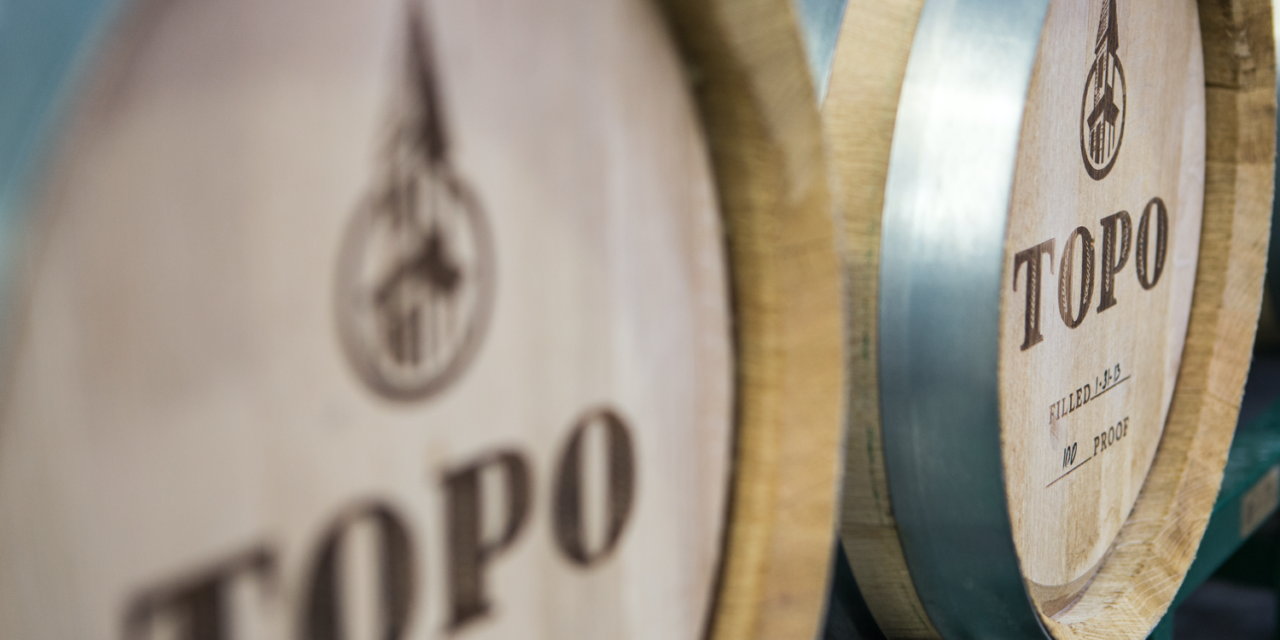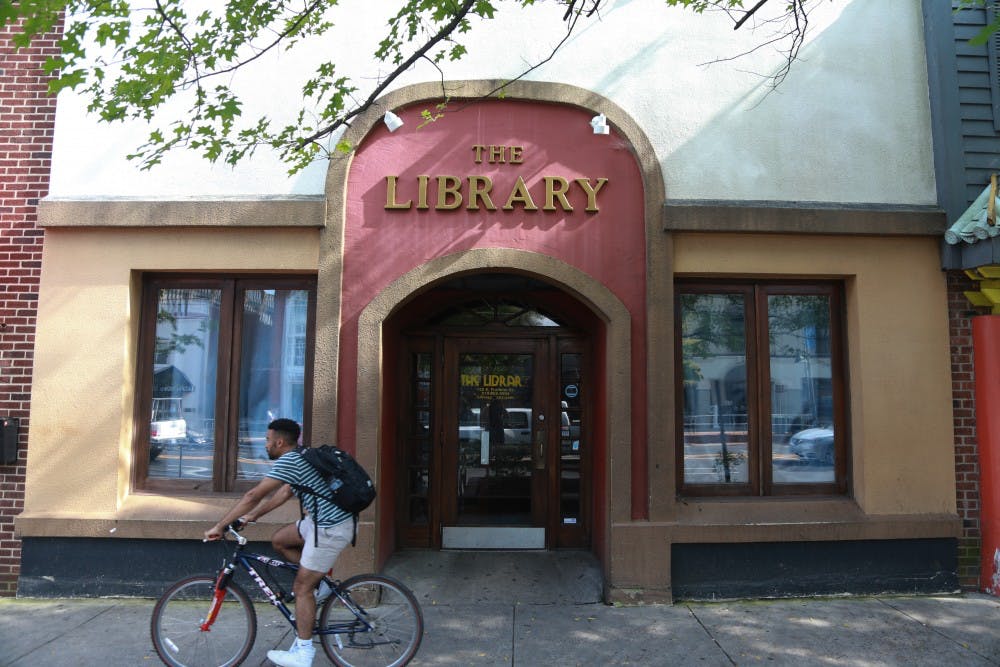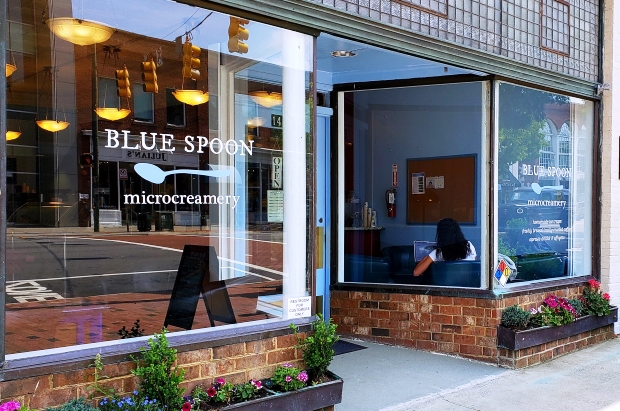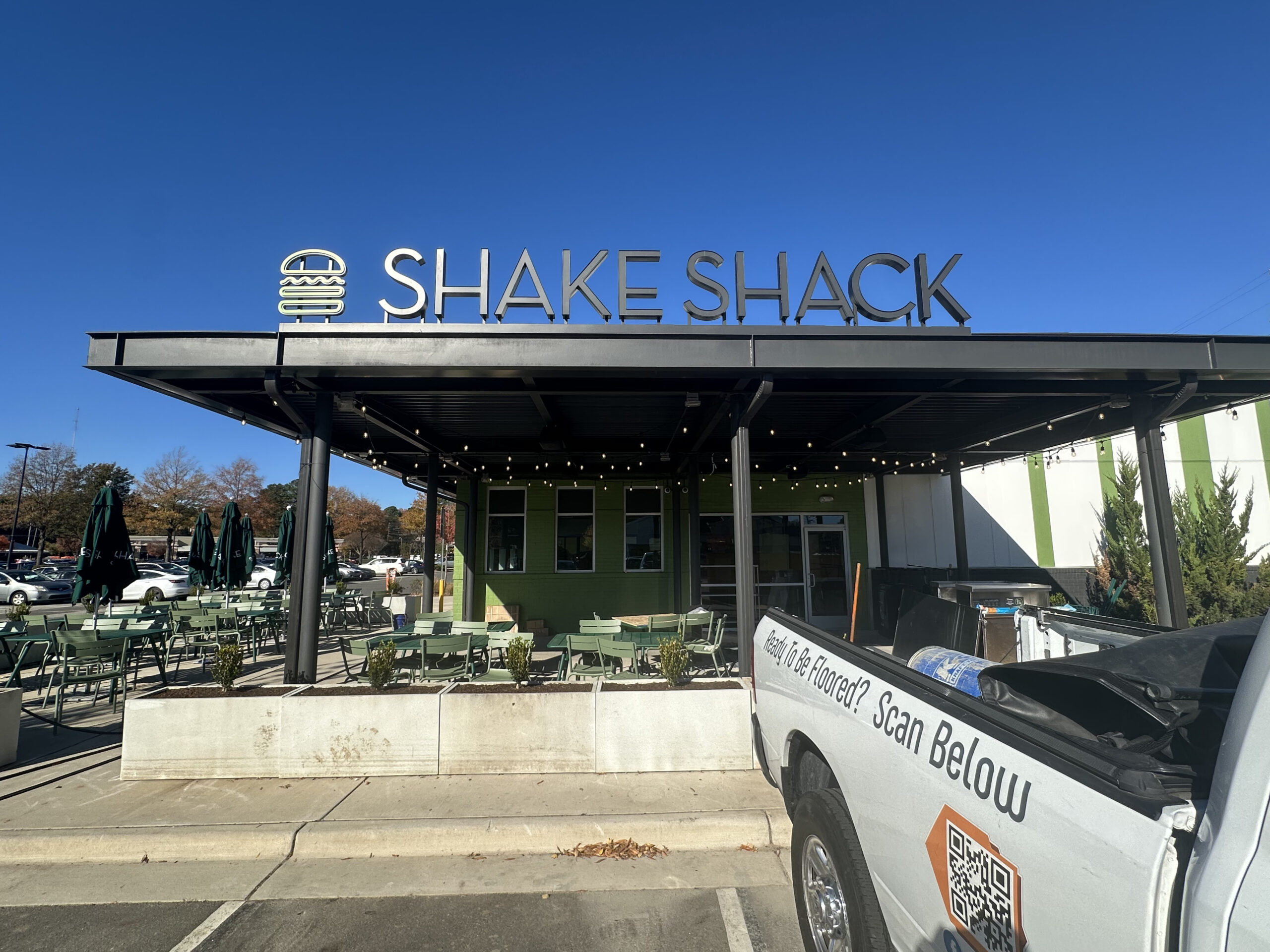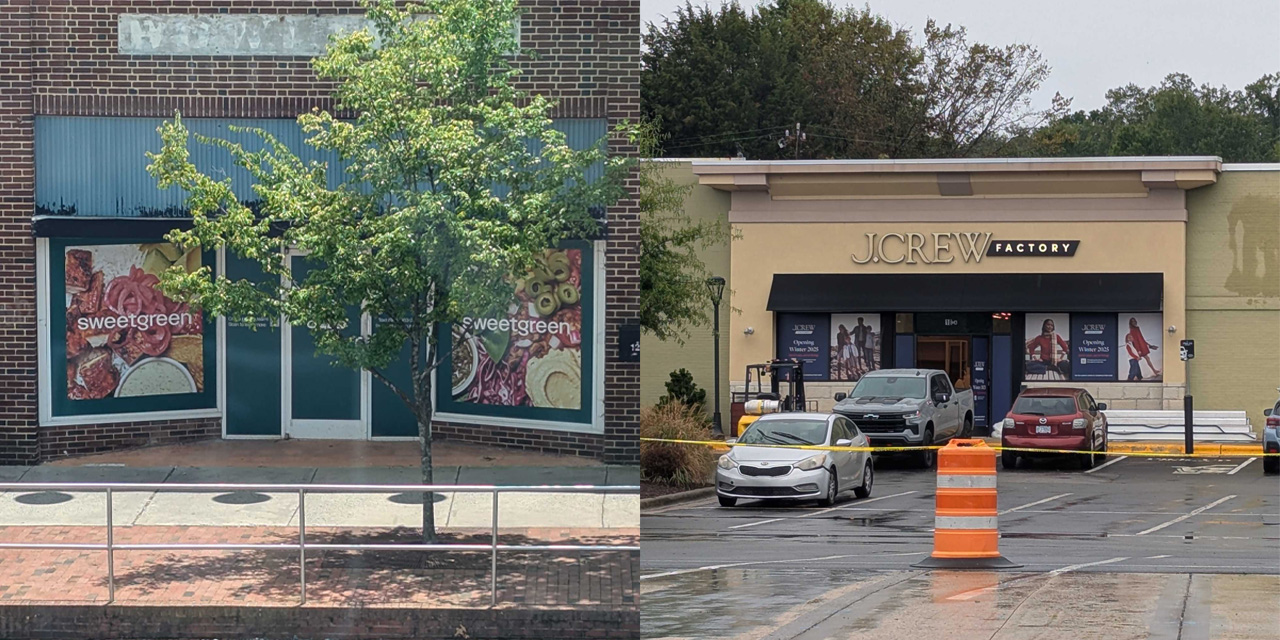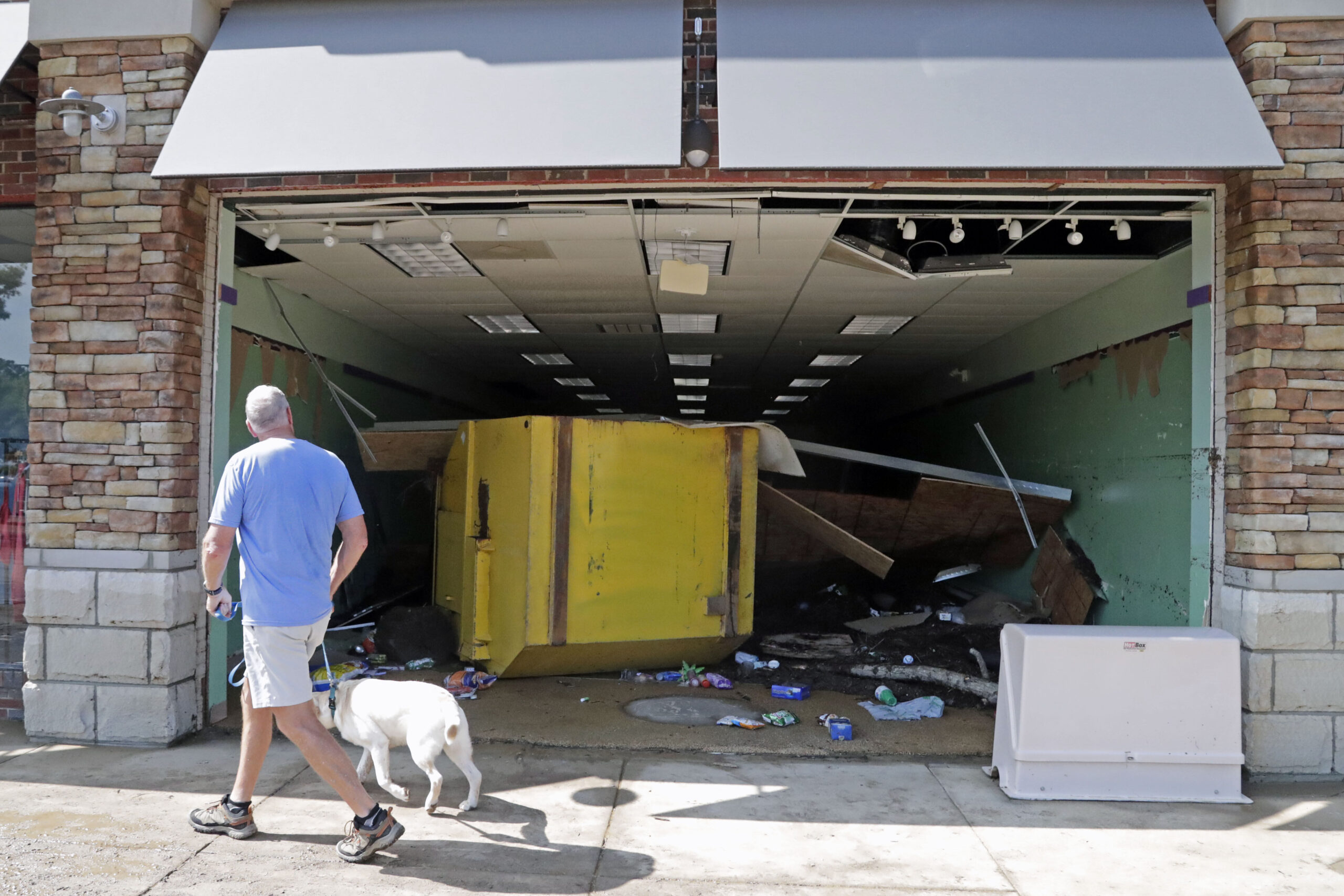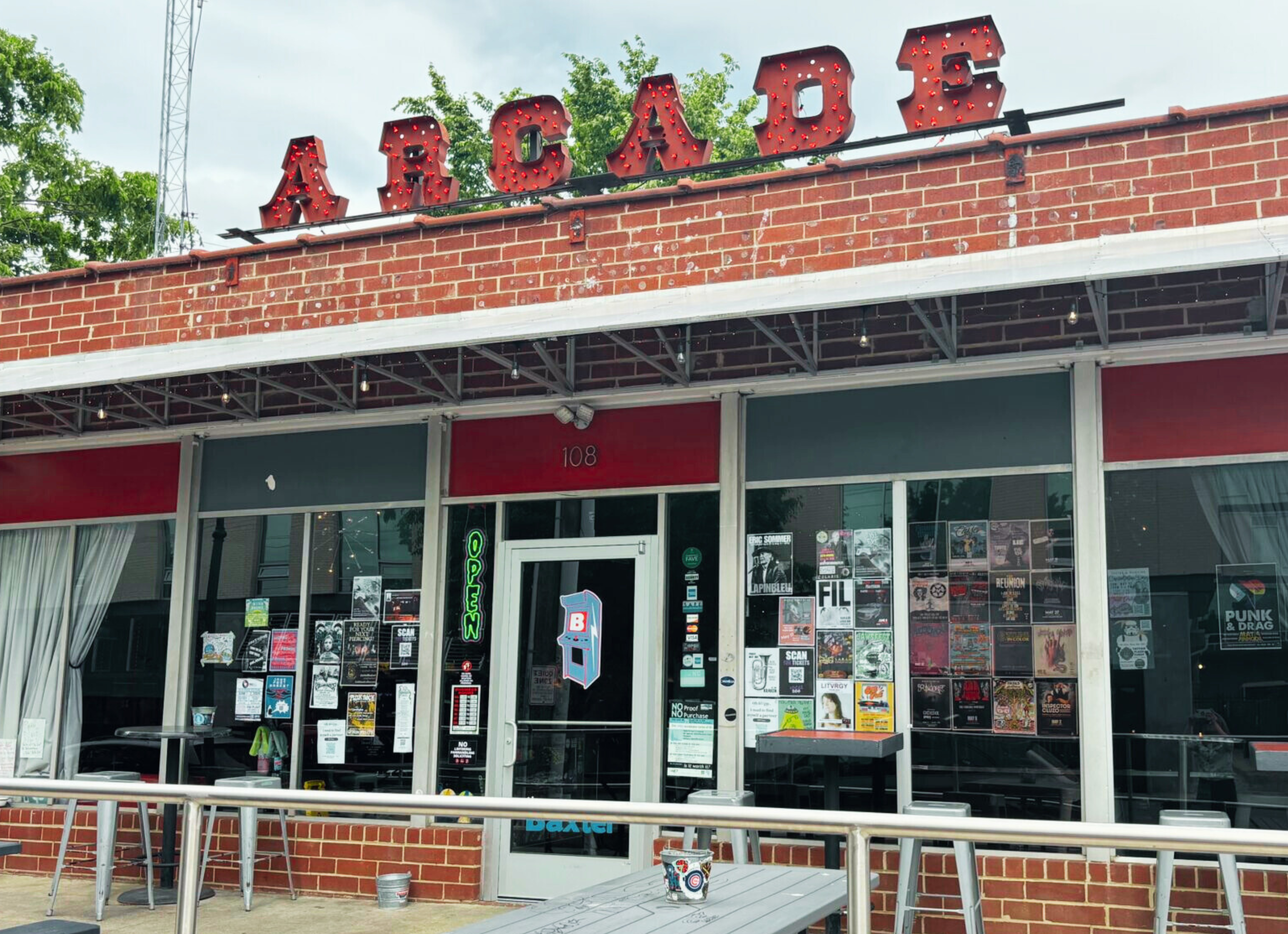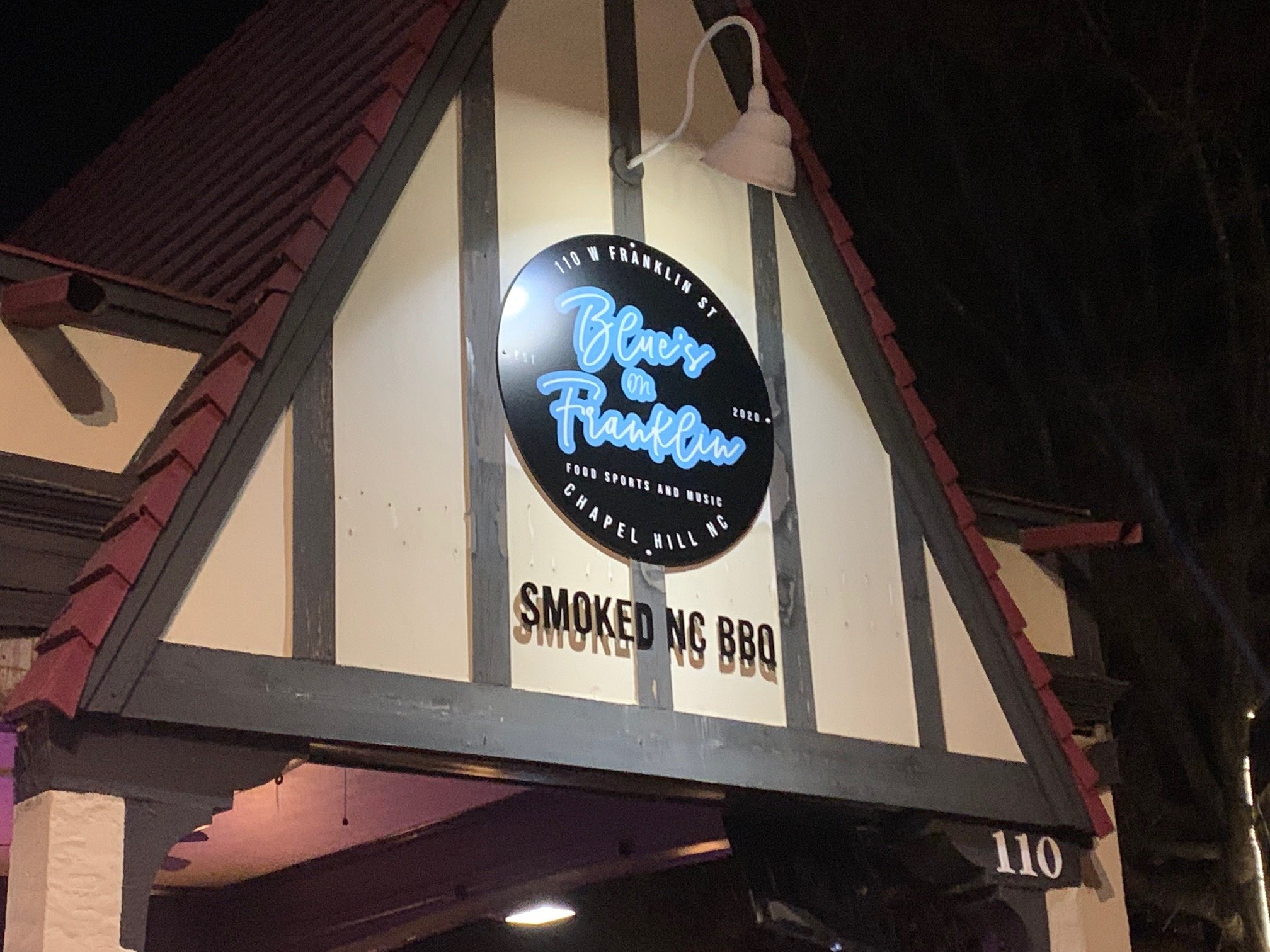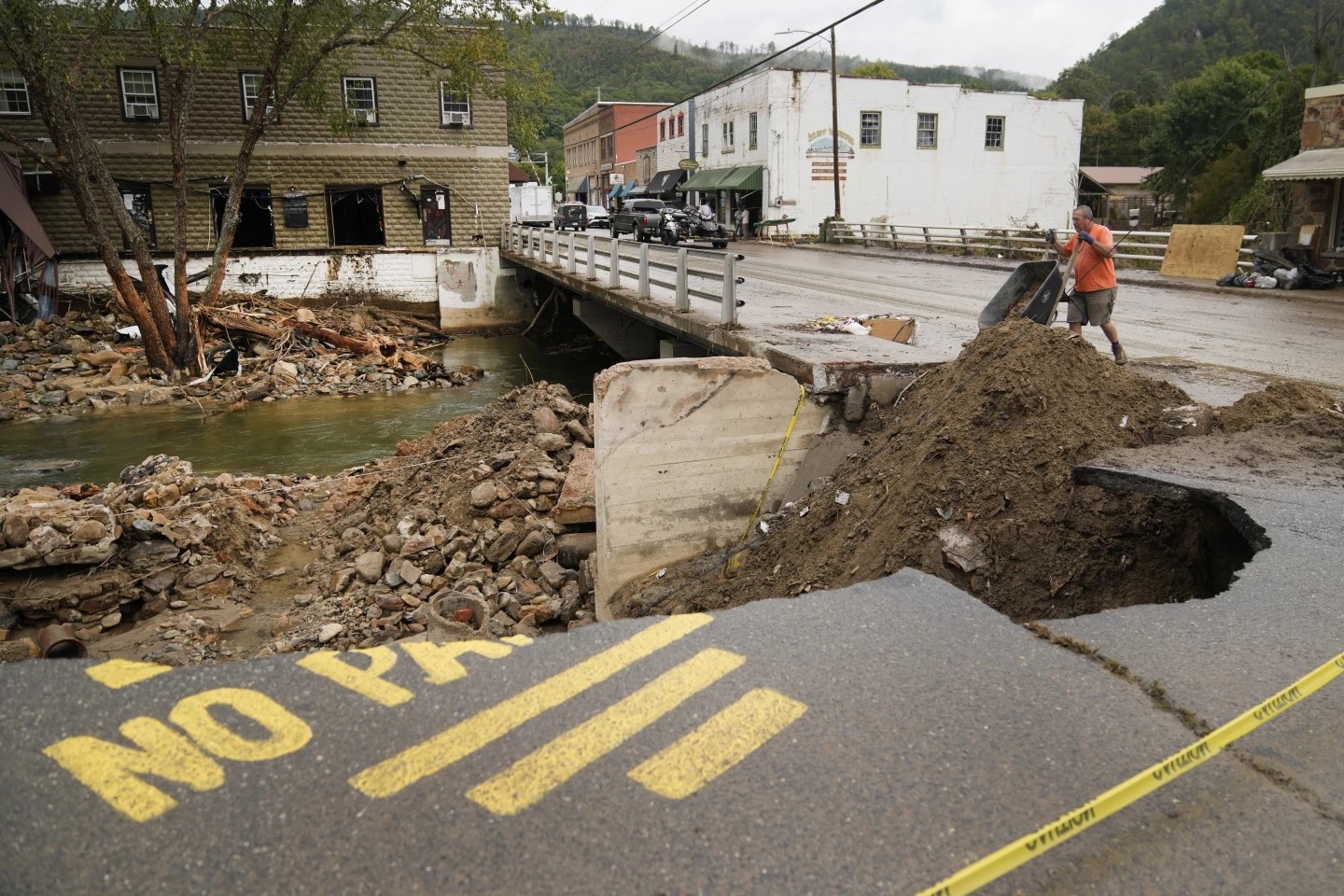After operating for just more than ten years on West Franklin Street, TOPO Distillery will close its doors for good on Wednesday.
The business — which is a sister company to the popular Top of the Hill restaurant and brewery — has been winding down operations for months in the building that formerly housed the Chapel Hill News. Owner Scott Maitland started the distillery in 2012 to create locally-made and organic spirits, but faced challenges at the state level to quickly and robustly operate to his vision. Through changes in state laws, and even updates to local government codes, he says TOPO Distillery worked to make spirits that reflected a commitment to buying locally-grown wheat and offered tours to customers.
Maitland recently spoke with 97.9 The Hill’s Brighton McConnell about the distillery’s closure, legacy and effects on the Chapel Hill community. The following is a transcript of the conversation, lightly edited for clarity.
Brighton McConnell: When did you kind of come to the decision that it was time to call off the, the operations for the distillery?
Scott Maitland: In 2018, it was clear that things were, you know…looking like we would want to make an exit and we would want to make an exit in the first quarter of 2020. It was clear that the distillery really struggled to make money during the course of its life in a large part because of the restricted rules surrounding access to markets imposed by the North Carolina ABC Board system. So the [independent] building company, its best interest was to sell the building in 2020. That necessitated, or also predicated, the idea of selling the distillery as well. We were set to sell those things and the closing date [of the sale] was March 23rd, 2020.
And of course, what happened? COVID hit March 17th and all of that stuff goes away. And so suddenly, restaurants closed, building sale’s off, distillery sale’s off. And we entered into a whole other chapter, which was just figuring out a way to survive. We ended up making hand sanitizer. The irony, to me, is we made more money making hand sanitizer, when we gave away 50% of all the hand sanitizer we made. We literally gave away 50% of all the hand sanitizer we made, and we still made more money than any year that we did actually sell liquor.
From the very beginning, things didn’t break in favor of the distillery. When we contemplated buying the Chapel Hill News building for use as the distillery, I met with the town and specifically said, “This is what we want to do.” And interestingly, the fire rating for printing press ink is the same as liquor. The building inspector at the time said, “Well, look, we already have a huge tank of printing press ink here. So, this building’s been operated under the same level of fire hazard. There’ll be no problem in terms of you putting a distillery here.”
Ultimately — this was during the Great Recession — negotiating for the sale of the building from the McClatchy Corporation took longer [than desired]. And in the meantime, the original building inspector that gave me the clearance retired. The new building inspector, after I purchased the building, said we couldn’t put a distillery in there. Right off the bat, I spent a year helping to reform the fire regulations in Chapel Hill in order to provide the ability for the distillery to be in that space. I go from there to opening it up and realizing basically my entire career was changing laws. Working with folks who allowed the fire regulations to allow this [distillery] to happen, and then immediately trying to change the laws to allow distilleries to sell their product. And I think that’s the legacy of Top of the Hill Distillery: we effectively were able to marshal the resources of the nascent Distillers [of North Carolina] Association. I think that the distillery industry is now a viable industry for folks in North Carolina. I’m just not interested in going through another whole capital raise. I’ve got three kids and I’d like to spend some time with them.
McConnell: I’m sure that there’s certainly a sense of accomplishment for all those ripple effects that you were able to generate. But what are some of the more positive memories that you have of the distillery and good things that it helped bring about — either for you or [the rest of] TOPO?
Maitland: I mean, this is pretty esoteric, but those fire regulation changes we’re talking about…basically what ended up happening was we ended up getting the town to adopt the Uniform Fire Code. Because up to that point, the Chapel Hill Fire Code, which was adopted and seen as very progressive in the 70s, used terms that were not defined in the Uniform Fire Code. What this meant was: if a developer has a dispute with the inspector of a town, you appeal to the Board of Insurance. Well, the Board of Insurance would always say that Chapel Hill won [disputes] under the old set of laws, because the Board of Insurance did not have definitions for things that were in Chapel Hill’s Fire code, like “fireproof.” Basically, the town always won a dispute with the developer when it came to fire issues. Now, we have embraced the Uniform Fire Code in the town of Chapel Hill, and that means that a developer can have an independent review if there’s a dispute between an understanding of what the regulations should be. As an attorney, I really appreciate that. And as someone that’s tried to develop things in Chapel Hill, I can appreciate the fact that the distillery was one of the spearheads for change.
I think the high point of the distillery warrants an actual historical marker. The very first bottle of liquor sold legally outside of an ABC store [in North Carolina] since 1909 was made October 1, 2015 in TOPO Distillery. And I think that’s a big deal. I think that was a real accomplishment, people said [it] couldn’t be done. And we had so many great events inside of the distillery, you know, we would do tours all the time.
We were credited for creating the organic wheat market in the state of North Carolina by the North Carolina Department of Agriculture. We contracted with the farmer and we kept that contract going even when our distillery was delayed because of issues over fire code and all that kind of stuff. But that long-term contracting allowed folks to show that there was a market for organic wheat. The fact that we were the first organic and locally-sourced distillery in the South, I think that’s a big deal. The fact that our vodka won five stars in San Francisco, which is sort of the highest competition in the distilling business, I think that’s a big deal. There was a lot of things, and the distillery took us all over. We were distributed in 12 states and we were distributed in Japan. It took us to China, it took us to Europe.
I think people don’t realize the role that Chapel Hill has played in the history of alcohol, especially when you consider then Carolina Brewery on top of the Hill being the fourth and fifth oldest breweries. But I think punching above our weight in terms of influence, because we were educating, you know, generations of Carolina students about craft beer back when people didn’t understand what craft beer was at all.

Scott Maitland (center) stands with Guy Murphy and Esteban McMahan during a “Business After Hours” event hosted at the TOPO Distillery in 2014.
McConnell: You mentioned the distillery and the hand sanitizer sales really helping out during the pandemic. Can you share the level of importance of [those operations]? Obviously, it was important when it came to public health — but what level of importance were the hand sanitizer sales for helping keep the rest of TOPO going during those first few months?
Maitland: What made the jump to hand sanitizer work was the realization we could flex the fact that we actually made alcohol from scratch. One of my biggest frustrations in this entire experience is that everybody markets themselves as “handcrafted, handmade, blah, blah, blah, blah, blah.” When, in fact, 85% of distilleries buy alcohol already made from somewhere else, right? I’m proud of the fact that we figured out we could go to the beer distributors, who were stuck with a bunch of beer they couldn’t sell and you can’t just dump beer down the drink. We convinced them to give us the beer and then we were able to cost-effectively turn that into ethanol and make hand sanitizer out of it. One of the state senators that helped me get the laws changed, called me up and said, “Hey, I helped you out with that law change. My distiller in my district is having a hard time buying ethanol to make hand sanitizer. Where are you guys getting your ethanol?” And I was like, “Senator, like I told you: I don’t buy ethanol, I make it.”
We had the equipment take that beer — we had the insight too, I mean, [TOPO] being a brewery — and that allowed us to cost effectively compete against obviously some much bigger players. Directly: did the hand sanitizer help us at Top of the Hill Restaurant and Brewery? Well, obviously we needed it and it was good that it was there. But I think the impact of the hand sanitizer was more indirect. It allowed me to keep my cadre of managers from the restaurant and redeploy them in another way while we also did limited restaurant operations.
One of the most fun things I’ve done in the last 10 to 15 years easily, was when we had the store down at the distillery and we realized that we’re the only place in North Carolina where people could stop and buy family dinners ready to pop in the oven, and beer and liquor to-go. At one point, we were making hand sanitizer for the Carolina Hurricanes and we were doing all kinds of fun things. It was fun too, because I would bring my kids in to help us put labels on hand sanitizer and fulfill orders for people. My two oldest kids got a chance to kind of see how a business works, but I think — psychologically — it was the most uplifting thing and made us feel like, “Okay, we’re gonna stay together as an organization and we’re gonna figure out a way to survive.”
McConnell: I want to close out with this question, Scott, and it does include some basketball, which I think a lot of people associate with Top of the Hill. You were talking about the legacy of the distillery. I think it’s both fitting and creative that the final two products the distillery is selling are these victory whiskeys and rums commemorating UNC men’s basketball’s wins over Duke in the 2022 season. I feel like that’s an additional way people are going to remember the legacy of the TOPO Distillery. How cool is it to have a connection to those special moments and to have these products that I think people are always going to — if they’ve bought them — associate with their experience watching those games?
Maitland: That’s right. It’s actually this incredibly bittersweet moment because what’s in those bottles is stuff we put away from the very, very beginning. And it’s fantastic. The events of last March Madness… I mean what an incredible memorable situation. Realizing that because of the laws that we changed and we were able to create a memory, a souvenir, a memento that really kind of captured the essence of our town [was incredible].
We aged this stuff for seven, eight, nine years, right? It’s expensive whiskey. The problem is the ABC boards wouldn’t carry it. They said “You’ve got to show that you can sell it.” So, we changed the law in 2019 that we can sell it directly to consumers…unlimited bottles. And so we have literally sold thousands and thousands of directly [to people], which gave us a nice profit margin. And now it’s great because the leftover stuff we have, we’re able to ship off the ABC [Stores] and as we wind down operations and leave the actual building, the North Carolina ABC Warehouse is still considered part of our distillery. So, the remaining bottles that we do have will still be available through the ABC system.
The decision [as a buyer] is a tough one: do you keep the bottle and never open it because it’s so cool? Or do you open the bottle and drink it because the stuff is so good? That is a difficult dilemma.
The last thing I’d like to point out is what I’m personally excited about. When I started Top of the Hill, I didn’t start [it] to be in the restaurant business. I started Top of the Hill to be in the Chapel Hill business, right? Chapel Hill needed a place where different groups of our community could come together. And I think one of the reasons why we’re associated with basketball and sports celebrations and all that stuff is we’ve always seen the corner of Franklin Street and Columbia as [a trust] for the entire town. The distillery was interesting because it was a North Carolina thing. I’ve been to every ABC store in the state and I learned so much about the [distilling industry]. But I’m very personally excited to have my main focus once again be on the restaurant.
Featured photo via TOPO Distillery.
Chapelboro.com does not charge subscription fees, and you can directly support our efforts in local journalism here. Want more of what you see on Chapelboro? Let us bring free local news and community information to you by signing up for our biweekly newsletter.

